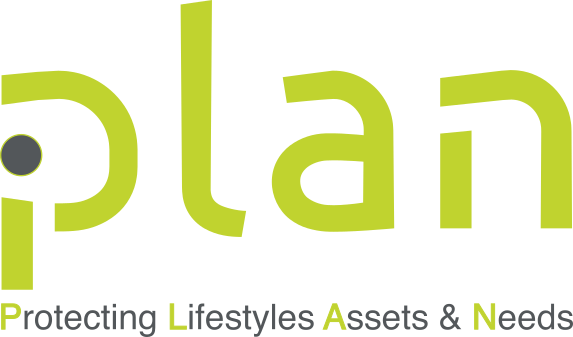What Medicare covers
Medicare beneficiaries may be wondering if Medicare will cover coronavirus. Here’s what we currently know about what it will cover:
- Medicare covers the lab tests for coronavirus. You pay no out-of-pocket costs when your doctor or other health care provider orders it.
- Medicare will pay lab technicians to travel to a beneficiary’s home to perform a coronavirus test. Under certain circumstances, hospitals and other entities will also temporarily perform tests for coronavirus on people at home and in other community-based settings. Remember, though your doctor or health care provider must first order the test.
- Medicare covers all necessary hospitalizations. This includes if you’re diagnosed with coronavirus and might otherwise have been discharged from the hospital after an inpatient stay, but you need to say in the hospital under quarantine.
- At this time, there’s no coronavirus vaccine, but when one becomes available,Medicare Part D will cover it.
- If you have a Medicare Advantage (MA) plan, you have access to these same benefits. Medicare allows these plans to waive cost sharing for coronavirus lab tests. Many MA plans also offer telehealth benefits. Check with your plan about costs and coverages.
- Medicare also covers “virtual check-ins” (also known as telemedicine), so you can connect with your doctor by phone or video or an online patient portal to see if you need to go in for a face-to-face visit.
To stay informed about Medicare coverage and coronavirus, along with tips to keep yourself safe, visit medicare.gov (www.medicare.gov).
Early prescription refills
Due to coronavirus, the Centers for Medicare & Medicaid Services is allowing Medicare Part D and Medicare Advantage plans to relax their “refill-too-soon” prescription rules if it will disrupt the beneficiary from accessing their medications. However, it’s up to the discretion of the plan as to how they relax these rules.
We recommend you check with your Part D or Medicare Advantage plan or your pharmacy about early refills.
In addition, Part D and Medicare Advantage plans may relax other restrictions due to coronavirus, such as:
- Reimburse beneficiaries for prescriptions they buy at an out-of-network pharmacy.
- Relax restrictions on retail pharmacies that offer mail and home delivery services of prescriptions.
- Waive prior authorizations for Part D drugs used to treat coronavirus.
Medicare telehealth coverage
Medicare expanded its telehealth benefits (www.youtube.com) so Medicare beneficiaries, who are at a higher risk for coronavirus, can receive a wider range of health care services from their doctors without having to travel to a health care facility. This means Medicare will pay for more than 80 additional services when furnished via telehealth, such as:
- Common office visits.
- Emergency room visits.
- Mental health counseling.
- Preventive health screenings.
Beneficiaries may use phones or smart phones and other devices that have audio and video, or just audio capabilities to get telehealth services.
Telehealth services are billed at the same amount as in-person services. Medicare coinsurance and deductibles still apply, however, the federal government allows health care providers to reduce or waive cost-sharing for telehealth visits.
Prepare for your health care needs
Be sure to have over-the-counter medicines and medical supplies, such as tissues, to treat fever and other symptoms. Most people will be able to recover at home from coronavirus.
Also make sure you have enough household items and groceries on hand so you’ll be prepared to stay at home for a period of time.
Tips to keep yourself healthy
The U.S. Centers for Disease Control (CDC) (www.cdc.gov), along with the Washington state Department of Health (www.doh.wa.gov), are monitoring the situation closely. The best thing you can do is stay calm and follow these tips:
- Wash your hands often with soap and water for at least 20 seconds, especially after you use the bathroom, before you eat and after you blow your nose, cough or sneeze.
- Avoid touching your eyes, nose and mouth with unwashed hands.
- Stay home when you’re sick.
- Avoid close contact with others who are sick.
- Cover your cough or sneeze with a tissue and then throw the tissue away. If you don’t have a tissue, cough or sneeze into the inside crook of your elbow.
- Try to avoid touching high-touch surfaces in public places, like elevator buttons, door handles, handrails, and handshaking with people. Use a tissue or your sleeve to cover your hand or finger if you must touch something.
- Clean and disinfect your home to remove germs: Practice routine cleaning of frequently touched surfaces—tables, doorknobs, light switches, handles, desks, toilets, faucets, sinks and cell phones.
- Refrain from hand shakes and hugs.
While there is no vaccine yet for coronavirus, it’s never too late to get your annual flu shot, which is also covered by Medicare Part B. Talk to your doctor or pharmacist about how you can protect yourself and those around you.
Source: https://www.insurance.wa.gov/medicare-and-coronavirus?utm_content=&utm_medium=email&utm_name=&utm_source=govdelivery&utm_term=












